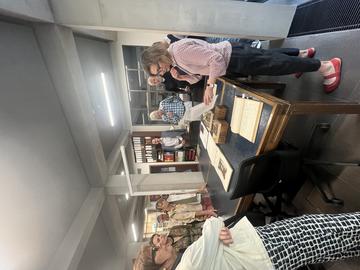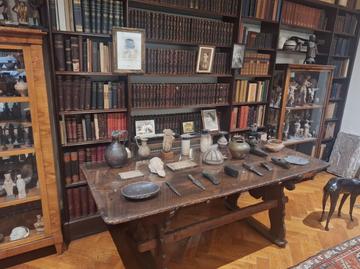This two-day workshop explored the complex relationship between Jews, Jewishness, and ancient civilizations from approximately 1860 to 1930. While scholarly attention has often focused on the intellectual binary of "Hellenism and Hebraism", this workshop expanded the conversation to examine how these engagements manifested in material culture and the development of cultural institutions.

A visit to the Wohl Reading Room and a fascinating talk on the collections of the Warburg Institute from Claudia Wederpohl
During this critical period, Jewish scholars, collectors, and thinkers made profound contributions to fields including archaeology, philology, Egyptology, and classics. Their work often navigated complex questions of identity, assimilation, and intellectual lineage at a time of rising nationalism and antisemitism across Europe.

Some of Sigmund Freud’s extensive collection of antiquities, still preserved at his house museum at 20 Maresfield Gardens, Hampstead
The workshop brought together an international group of experts from theology, history, archaeology, philology, classics, and art history, as well as museum curators and heritage professionals. Speakers explored diverse topics including:
- Jewish philological traditions and their engagement with ancient languages
- Jewish participation in Egyptology and archaeological expeditions
- Formation of intellectual networks and collecting practices
- The life and collections of Ludwig Pollak, antiquities dealer in Rome
- Jewish engagements with the archaeology of Palestine
- The translation of antiquity into new cultural and intellectual contexts
The event took place at the Warburg Institute and the Courtauld Institute, with a special visit to the archives of the Warburg Institute and the Freud Museum. It was supported by the University of Oxford's John Fell Fund and the Courtauld Institute. The workshop is the first of two planned events, with a follow-up conference in Rome in 2026 that will build on the Jewish Museum of Rome/ Museo Barraco's work on archaeologist Ludwig Pollack.
This project is co-organised by Dr. Silvia Davoli (University of Oxford) and Dr Tom Stammers (Courtauld Institute). The full programme can be seen here.